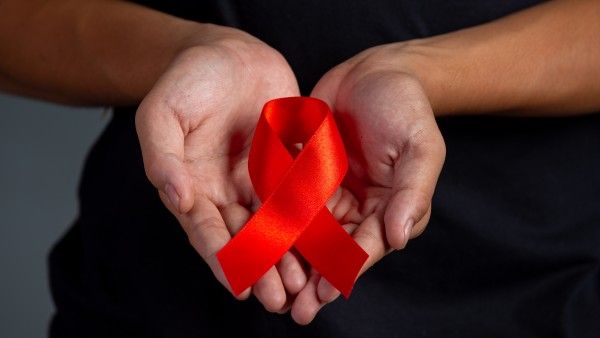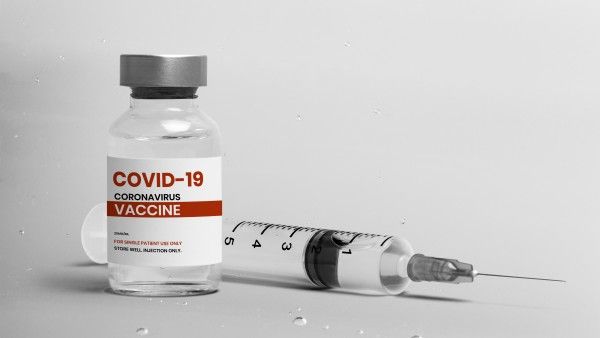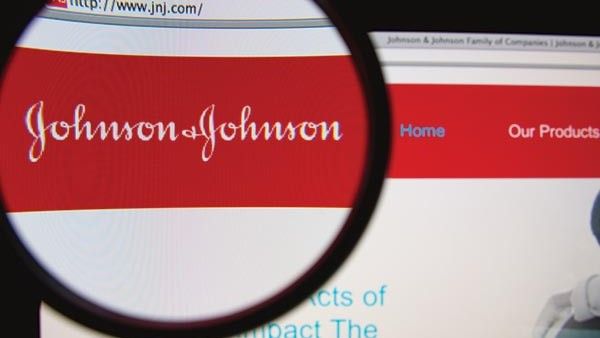Just In
- 13 hrs ago

- 13 hrs ago

- 16 hrs ago

- 17 hrs ago

Don't Miss
- Sports
 Who Won Yesterday's IPL Match 41? SRH vs RCB, IPL 2024 on April 25: Royal Challengers Bangalore End Losing Streak
Who Won Yesterday's IPL Match 41? SRH vs RCB, IPL 2024 on April 25: Royal Challengers Bangalore End Losing Streak - Finance
 Bajaj Group Stock Declares Rs. 60/Share Dividend: Buy Ahead of Record Date On 28 June?
Bajaj Group Stock Declares Rs. 60/Share Dividend: Buy Ahead of Record Date On 28 June? - Movies
 TRP Report Week 16: Anupamaa, Jhanak BEAT Yeh Rishta Kya Kehlata Hai, Ghum Hai. Top 10 Shows List
TRP Report Week 16: Anupamaa, Jhanak BEAT Yeh Rishta Kya Kehlata Hai, Ghum Hai. Top 10 Shows List - News
 MEA Dismisses US Human Rights Report On Manipur As 'Biased And Misinformed'
MEA Dismisses US Human Rights Report On Manipur As 'Biased And Misinformed' - Automobiles
 Royal Enfield Unveils Revolutionary Rentals & Tours Service: Check Out All Details Here
Royal Enfield Unveils Revolutionary Rentals & Tours Service: Check Out All Details Here - Technology
 Elon Musk’s X Is Launching a TV App Similar to YouTube for Watching Videos
Elon Musk’s X Is Launching a TV App Similar to YouTube for Watching Videos - Education
 AICTE introduces career portal for 3 million students, offering fully-sponsored trip to Silicon Valley
AICTE introduces career portal for 3 million students, offering fully-sponsored trip to Silicon Valley - Travel
 Escape to Kalimpong, Gangtok, and Darjeeling with IRCTC's Tour Package; Check Itinerary
Escape to Kalimpong, Gangtok, and Darjeeling with IRCTC's Tour Package; Check Itinerary
FDA Warns Of Risk Of Guillain-Barre Syndrome After J&J Covid Vaccine: Everything You Need To Know
On Monday, the US Food and Drug Administration updated its warning labels for the Johnson & Johnson COVID-19 vaccine to include information about an observed increased risk of a rare neurological disorder.
The Food and Drug Administration announced the new warning based on an analysis of a federal vaccine safety monitoring system. Officials have identified 100 preliminary Guillain-Barre Syndrome (GBS) reports after approximately 12.5 million doses administered [1]. Out of the 100 reports, 95 were serious and required hospitalisation and one death [2]. However, it must be noted that the number represents a tiny fraction of the nearly 13 million Americans who have received the one-dose vaccine.
The new warning will be included in pamphlets given to people getting the J&J shot. In an earlier report, it was stated that the J&J's vaccine could arrive in India as early as July, though it will be limited to a few thousand doses initially. The one-shot vaccine will be priced at Rs 25 in India.
WHO had previously stated that the J&J vaccine's efficacy was 66.3 per cent for mild to moderate COVID-19 and 76.3 per cent for severe to critical infection. And that it provides 100 per cent protection from hospitalisation for COVID-19 28 days after vaccination [3].

So, what is Guillain-Barré syndrome and how does the J&J vaccine cause that?

What Is Guillain-Barré Syndrome?
Guillain-Barre syndrome is a rare disorder in which your body's immune system attacks your nerves. The autoimmune disorder destroys the healthy nerve cells in your peripheral nervous system (PNS), leading to weakness, numbness, and tingling, and can eventually cause paralysis [4]. Most cases usually start a few days or weeks following a respiratory or gastrointestinal viral infection [5].

Guillain-Barré is rare, and there is no cure for the syndrome, but treatment can reduce the severity of the symptoms and shorten the duration of the illness. Although most people recover from Guillain-Barre syndrome, the mortality rate is 4 to 7 per cent. Between 60-80 per cent of people are able to walk at six months. However, in some patients, weakness, numbness or fatigue may linger on. Guillain-Barré syndrome can affect anyone. It can strike at any age (although it is more frequent in adults and older people).
What Are The Types Of Guillain-Barré Syndrome?
There are multiple types of Guillain-Barré syndrome, and the primary types are as follows [6]:
- Acute inflammatory demyelinating polyradiculoneuropathy (AIDP): It is commonly found in North America and Europe and causes muscle weakness that starts in the lower part of your body and spreads upward.
- Miller Fisher syndrome (MFS): In MFS, paralysis starts in the eyes and is also associated with an unsteady gait.
- Acute motor axonal neuropathy (AMAN)
- Acute motor-sensory axonal neuropathy (AMSAN)

What Are The Symptoms Of Guillain-Barré Syndrome?
Guillain-Barre syndrome often begins with tingling and weakness starting in your feet and legs, which then spreads to your upper body and arms. In some cases, the symptoms can begin in the face or arms [7].
Symptoms of Guillain-Barre syndrome are as follows:
- Severe pain that may feel achy and may get worse at night
- Difficulty with bladder control or bowel function
- Rapid heart rate
- Low or high blood pressure
- Difficulty breathing
- Difficulty swallowing, speaking or chewing
- Difficulty with eye muscles and vision
- Prickling, pins and needles sensations in your fingers, toes, ankles or wrists
- Weakness in your legs that spreads to your upper body
- Unsteady walking or inability to walk or climb stairs
The symptoms of GBS can increase in intensity over a period of hours, days, or weeks until certain muscles cannot be used at all and, in some cases when the person become almost paralysed.

What Are The Causes Of Guillain-Barré Syndrome?
The exact cause of Guillain-Barre syndrome is not known.
- The disorder usually appears days or weeks after a respiratory or digestive tract infection [8].
- According to the CDC, about two-thirds of people with Guillain-Barré develop it soon after they have been sick with diarrhoea or a respiratory infection [9].
- Campylobacter jejuni infection has been associated with Guillain-Barré, one of the most common bacterial causes of diarrhoea in the US, and is often found in undercooked food, especially poultry [10].
- Influenza
- Cytomegalovirus (CMV), which is a strain of the herpes virus
- Epstein-Barr virus (EBV) infection, or mononucleosis
- Mycoplasma pneumonia, which is atypical pneumonia caused by bacteria-like organisms
- HIV or AIDS
- Spinal tap (lumbar puncture)
- Electromyography
- Nerve conduction studies
Other infections associated with GBS include the following:
COVID-19 was classified as a risk factor for developing GBS in 2020[12]. 2 to 5 per cent of people with Guillain-Barre syndrome experience a relapse. Rarely, death may occur from complications such as respiratory distress syndrome and heart attacks.
How Is Guillain-Barré Syndrome Diagnosed?
Guillain-Barre syndrome can be difficult to diagnose in its earliest stages because its signs and symptoms are similar to those of other neurological disorders and may vary from person to person.
The diagnosis will involve a medical history analysis and a thorough physical examination, which may be followed by:

What Is The Treatment For Guillain-Barré Syndrome?
Currently, there is no cure for Guillain-Barre syndrome. However, two types of treatments can speed recovery and reduce the severity of the illness, and they are as follows [13]:
- Plasma exchange (plasmapheresis): In this treatment, the liquid portion of part of your blood (plasma) is removed and separated from your blood cells and works by getting rid of plasma of certain antibodies that contribute to the immune system's attack on the peripheral nerves.
- Immunoglobulin therapy: Immunoglobulin containing healthy antibodies from blood donors is given through a vein, which can help block the damaging antibodies that may contribute to Guillain-Barre syndrome.
- About 80 per cent can walk independently six months after diagnosis
- About 60 per cent fully recover motor strength one year after diagnosis
- About 5 to 10 per cent have very delayed and incomplete recovery
Apart from these, pain-relievers and physical therapy are also treatment options and are sometimes administered together.

Can People Recover From Guillain-Barré Syndrome?
Some people can take months, and while some may take years to recover. In general, symptoms will get worse for two to four weeks before they stabilise. Recovery can then take anywhere from a few weeks to a few years, but most recover in 6 to 12 months.

COVID-19 Vaccine And Guillain-Barré Syndrome
In extremely rare cases, people can develop the disorder days or weeks after receiving a vaccination, states the CDC [14]. They also added that research indicates you are more likely to get Guillain-Barré from the flu rather than the vaccine. The CDC and the FDA have been monitoring side effect reports submitted by physicians, drugmakers and patients to a federal vaccine safety database.
Zika Virus And Guillain-Barré Syndrome
A reported link between the zika virus and Guillain-Barré syndrome was reported from Brazil in 2015. Zika virus is a mosquito-borne disease that is transmitted primarily by an infected female (Aedes aegypti) mosquito. According to the WHO, it is also becoming increasingly evident that it can also be transmitted through sex as well.

Current CDC research suggests that GBS is strongly associated with Zika; however, only a small proportion of people with recent Zika virus infection get GBS [15]. On 9 July, there were reports that of a pregnant woman in Kerala who has been diagnosed with Zika virus infection [16].
While there has been no evidence that the recent outbreak of Zika in Kerala, India and the GBS outbreak could have a potential link, experts advise people to take the right precautionary measures to prevent and reduce the risk of any diseases at an unprecedented time like this.

Previous Claims About Johnson & Johnson Vaccine
This is not the first negative outcome/result of the J&J vaccine that is being reported.
- In February 2021, the J&J vaccine linked to a rare but serious blood-clotting disorder [17].
- In June 2021, there was another issue when regulators told the J&J company that it should throw out tens of millions of additional doses produced at a plant in Baltimore because they might be contaminated [18].
- There have been no studies to show how protective the J&J vaccine is against new variants like Delta and Delta Plus.
On A Final Note...
J&J issued a statement that it has been discussing the reports with the FDA and other health regulators around the world and will be reviewed by a panel of outside vaccine experts of the CDC.
[image source: freepik]
-
 pregnancy parentingMysterious Pneumonia Outbreak In China: What Are The Long-Term Effects Of Pneumonia In Children?
pregnancy parentingMysterious Pneumonia Outbreak In China: What Are The Long-Term Effects Of Pneumonia In Children? -
 healthCan You Get Back COVID-Related Loss Of Sense Of Smell And Taste (Parosmia)? Looks Like You Can!
healthCan You Get Back COVID-Related Loss Of Sense Of Smell And Taste (Parosmia)? Looks Like You Can! -
 healthDid Covid-10 Vaccination Increase Risk Of Sudden Deaths In Young Adults? ICMR Finds This..
healthDid Covid-10 Vaccination Increase Risk Of Sudden Deaths In Young Adults? ICMR Finds This.. -
 wellnessDelhi Air Pollution, Air Quality Very Poor: Do Covid Masks Help Reduce Pollution Side Effects?
wellnessDelhi Air Pollution, Air Quality Very Poor: Do Covid Masks Help Reduce Pollution Side Effects? -
 healthNobel Prize 2023: Scientists Behind The COVID-19 mRNA Vaccines Wins
healthNobel Prize 2023: Scientists Behind The COVID-19 mRNA Vaccines Wins -
 healthWhat Is Disease X? 20 Times More Deadlier Than Covid 19; Can Cause 50 Million Deaths, Does It Have Vaccine?
healthWhat Is Disease X? 20 Times More Deadlier Than Covid 19; Can Cause 50 Million Deaths, Does It Have Vaccine? -
 healthCOVID-19 Vaccines and Heart Attacks: New Studies Show Different Results; What Are They?
healthCOVID-19 Vaccines and Heart Attacks: New Studies Show Different Results; What Are They? -
 healthDo You Pick Your Nose? Stop! It Can Increase COVID Risk
healthDo You Pick Your Nose? Stop! It Can Increase COVID Risk -
 healthEris Variant: WHO Alarms New Covid Wave; Should India Be Concerned About This Pandemic
healthEris Variant: WHO Alarms New Covid Wave; Should India Be Concerned About This Pandemic -
 healthVitamin D Deficiency Linked With Increased Risk Of Long COVID
healthVitamin D Deficiency Linked With Increased Risk Of Long COVID -
 healthCOVID Surge In India: Do You Need A COVID-19 Booster Shot?
healthCOVID Surge In India: Do You Need A COVID-19 Booster Shot? -
 healthCOVID-19: IMA Cites 3 Reasons Behind Recent Surge In Covid-19 Cases: What Are They?
healthCOVID-19: IMA Cites 3 Reasons Behind Recent Surge In Covid-19 Cases: What Are They?


 Click it and Unblock the Notifications
Click it and Unblock the Notifications



